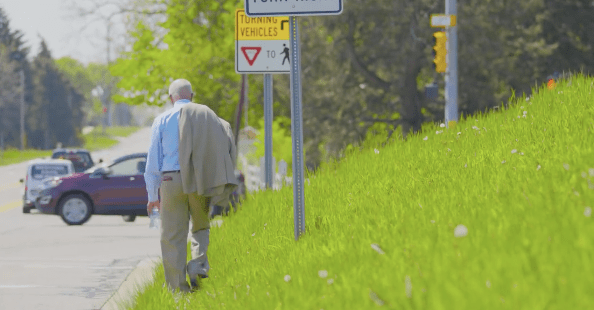Detroit transit is famous for all the wrong reasons. To get to the sprawled-out suburbs where the jobs are, people without access to a car have to make multiple transfers on routes operated by different agencies, often with long, long walks in between.
Despite recent campaigns to create a unified regional transit system, bus riders still face crushing obstacles to job access. A 2016 ballot measure to fund a cohesive bus network serving five counties failed by a razor thin margin of less than 1 percent. A similar referendum later this year could start to turn things around, but suburban officials are resisting plans to improve service and expand access to good transit.
To highlight the issue, Wayne County Executive Warren Evans (whose turf includes Detroit) recently rode the bus to a suburban job center 25 miles from the center city. Here's a recap of his journey, which included two painfully slow bus rides and a hike through knee-deep grass:
Evans wrote on Facebook:
I took a bus trip from Detroit to a jobs center in Novi that requires two bus rides and a two-mile walk to my final destination. For me, this was an excercise but for too many of our fellow residents this is an everyday reality. The status quo isn't working. We have to do better, for workers and to drive investment and grow our regional economy. We need a real regional transit solution. #ConnectSEMichigan
While Detroit media and business leaders have mostly come around to the idea of investing in better bus service, old guard suburban politicians have not.
Oakland County Executive Brooks Patterson, who built his political career out of white suburban racial animosity, has refused to put the transit measure back on the ballot in his county. He characterizes transit as a handout, while he openly cheers for billions in state and federal aid to gouge wider highways through Detroit's inner suburbs.





